Boulder Crest Foundation
Dr. Gary Elkins is a member of the Scientific Advisory Panel of the Boulder Crest Foundation. Members of the Scientific Advisory Panel include Dr. Richard Tedeschi (Chair of the Boulder Crest Institute) and Dr. Bret Moore (Vice-Chair) of the Boulder Crest Institute.
“Most people struggle with some significant trauma in life whether it be traumatic events as an adult, very adverse events in childhood, or some other exceptionally stressful experiences. The PTG approach teaches us that the struggle can lead to growth and in some cases strength and becoming our best self”
– Gary Elkins, Ph.D., ABPP
The Science of Posttraumatic Growth
The science of Posttraumatic Growth was developed after a decade of research and clinical work focused on trauma survivors. UNC-Charlotte professors and psychologists Richard Tedeschi and Lawrence Calhoun identified that many trauma survivors grew in positive ways in the aftermath of their trauma.
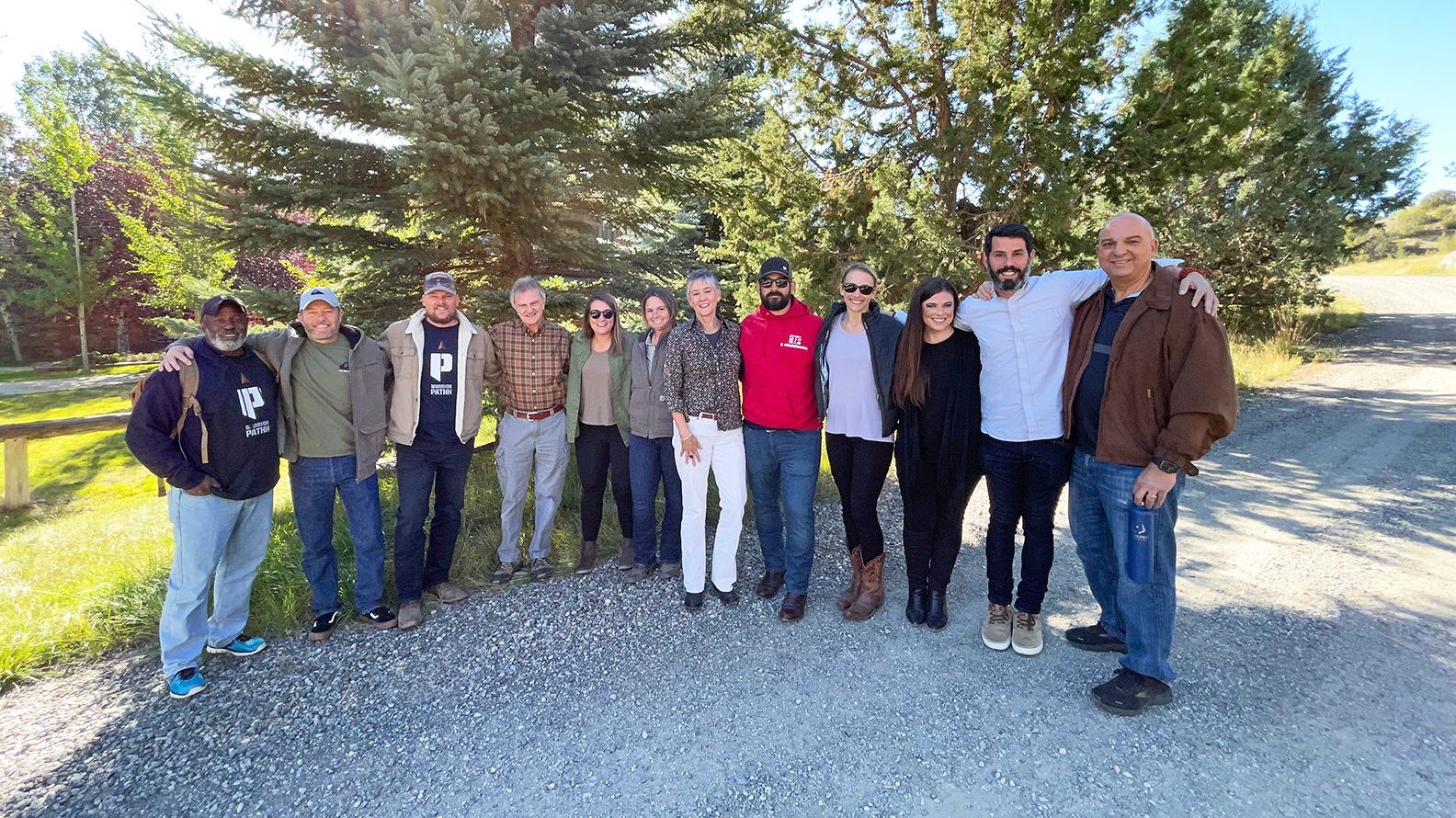
The Boulder Crest Institute is the world leader in advancing the science of Posttraumatic Growth (PTG). Dr. Richard Tedeschi chairs the Boulder Crest Institute and provides expertise in the science of Posttraumatic Growth approach in program development and intervention for veterans, first responders, and their families.
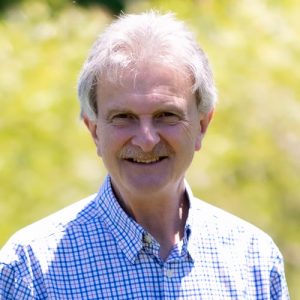
Dr. Tedeschi is supported in this work by the Vice Chair of the Boulder Crest Institute, Dr. Bret Moore. Dr. Bret A. Moore is a prescribing psychologist and board-certified clinical psychologist in San Antonio, Texas.
He is a former active duty Army psychologist and two-tour veteran of Iraq. He is the author and editor of 22 books including Transformed by Trauma, Treating PTSD in Military Personnel: A Clinical Handbook, The Posttraumatic Growth Workbook, Wheels Down: Adjusting to Life after Deployment, and Taking Control of Anxiety: Small Steps for Overcoming Worry, Stress, and Fear. He has written over 200 book chapters, peer-reviewed journal articles, and popular press articles to include features for Scientific American Mind, The New Republic, and Military Times.
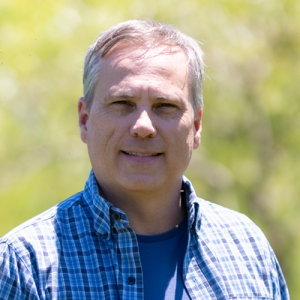
Dr. Moore is a Fellow of the American Psychological Association and serves on the Board of Trustees for the Texas Psychological Association. He is the recipient of the Charles S. Gersoni and Arthur W. Melton awards in military psychology from Division 19 (Society for Military Psychology), the Peter J. N. Linnerooth National Service, and Early Career Achievement awards in Public Service Psychology from Division 18 (Psychologists in Public Service) and Educator of the Year from Division 55 (American Society for the Advancement of Pharmacotherapy) of the American Psychological Association. His views on clinical and military psychology have been quoted in USA Today, National Geographic, and The Boston Globe, and on CNN and Fox News. He has appeared on NPR, the BBC, and CBC.
Boulder Crest Foundation History

The Boulder Crest Foundation was founded by Ken Falke and Julia Falke. Ken spent 21-years in the US Navy Explosive Ordnance Disposal (EOD) community and retired as a Master Chief Petty Officer. Halfway through Ken’s career, he was severely injured in a parachuting accident and after healing, went on to make over 1000 parachute jumps and lead men and women on thousands of high-risk missions. Ken’s personal story is a great example of Posttraumatic Growth.
During the wars in Iraq and Afghanistan, hundreds of EOD warriors were injured and killed on the battlefields. Ken and Julia visited many of the wounded EOD warriors and their families and witnessed firsthand the care they received.
Ken and Julia felt that these brave men and women and their families deserved more support and care than what was available to them. The Falkes started their personal journey of philanthropy by hosting veterans and their families for meals and short stays at their home, but they knew there was more work to be done. In 2010, the Falkes donated 37 acres of their property and made a substantial financial investment to establish Boulder Crest Foundation.
Programs
Boulder Crest Foundation is a national nonprofit organization focused on the development, delivery, study, and scale of Posttraumatic Growth-based training programs that teach people how to overcome life’s challenges and thrive when faced with adversity. The overarching goal of these programs is to ensure that our core constituents – combat veterans, first responders, and their families – live rewarding, purposeful, and fulfilling lives in the aftermath of trauma. Posttraumatic Growth (PTG) is centered on five key processes that are achieved through intensive learning, experiential processes, and training. These include developing personal strengths and a reappraisal to identify the struggle with coping with trauma as an opportunity for greater self-awareness and growth. Second, developing deeper interpersonal relationships. Third, finding spiritual growth and meaning. Fourth, greater appreciation of life. Fifth, and of great importance identifying and acknowledging new possibilities that allow individuals to differentiate between their “Old Story” and new possibilities of “My New Story” of growth and change.
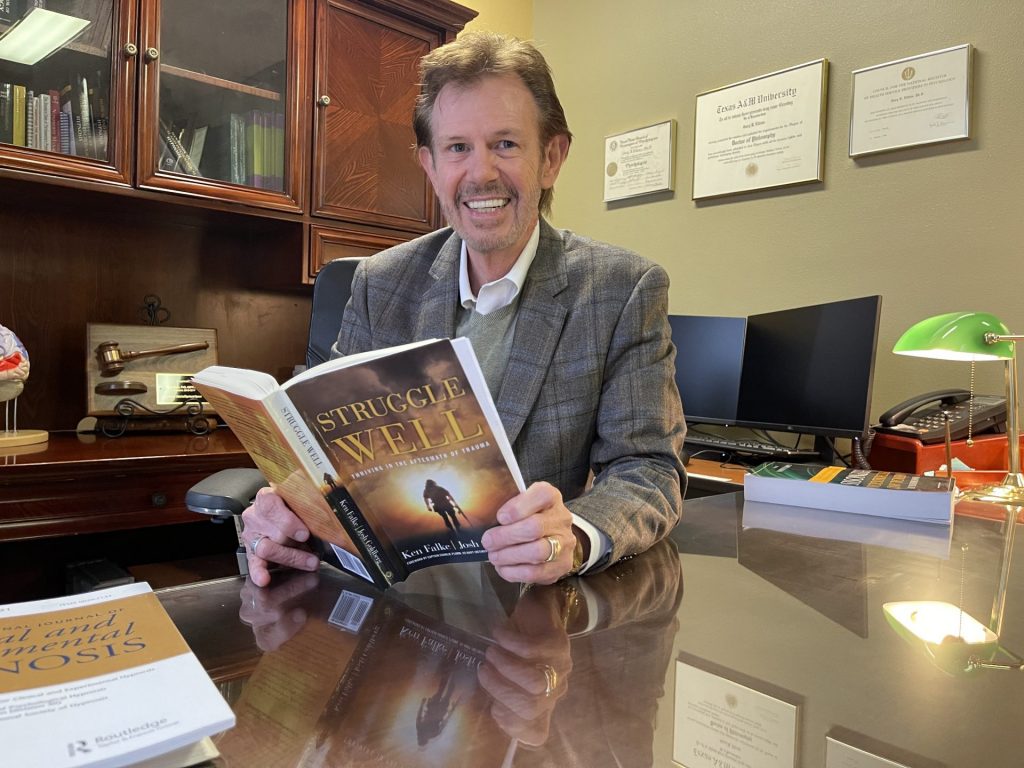
Posttraumatic Growth program at the Boulder Crest Foundation and sites is focused on five key concepts and a developing program of research. Dr. Elkins brings his expertise in clinical research, Mind-Body experiential training, military experience, and clinical psychology practice to advance research to better understand the outcomes and efficacy of this unique program and approach to helping veterans, their families, and first responders.
Boulder Crest’s signature program, Warrior PATHH (Progressive and Alternative Training for Helping Heroes), is 90-days in duration with a lifetime of ongoing coaching, training, accountability, and community. The program begins with a 7-day intensive and immersive initiation delivered by nine teams at eight permanent locations across the United States. Warrior PATHH provides combat veterans and first responders – who often find traditional forms of mental health (e.g., psychotherapy, medications) treatment to be inaccessible, intolerable, and/or ineffective – with an effective, cultural appropriate, and transformative alternative focused on training rather than treatment. Warrior PATHH answers the call for “new and innovative approaches to PTSD” and utilizes a number of mind-body interventions including mindfulness, experiential tasks, reflection, and deep human connections.
Current Research
Current research led by Dr. Gary Elkins is examining the primary and secondary outcomes of the Boulder Crest Warrior PATHH. Research is addressing questions such as: What are the short and long-term effects and benefits? What are the most effective components and delivery methods for the Warrior PATHH program? Is the Warrior PATHH program effective with female veterans, families, and first responders? Can new insights be determined from conducting a wait-list control cross-over clinical trial? What are the most effective outcome measures? What affects use and long-term benefits?
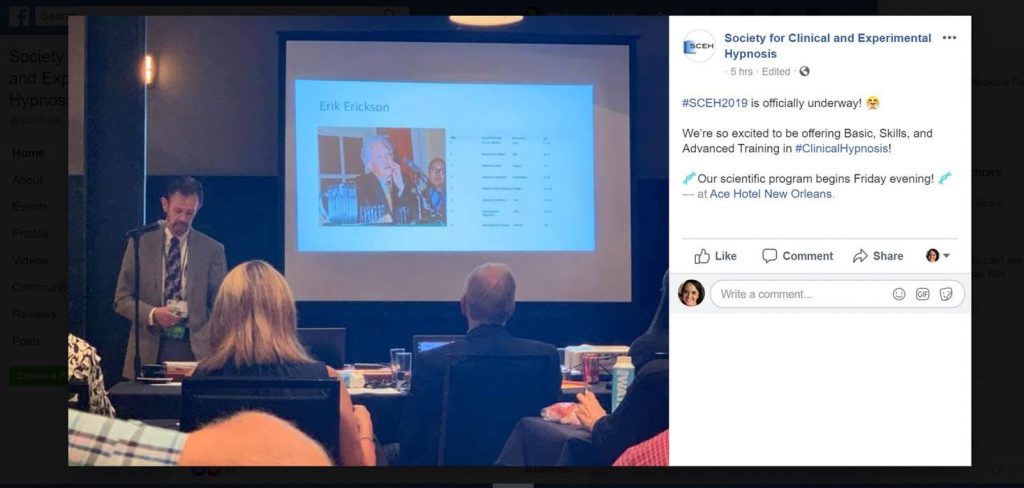
Warrior PATHH is the first ever program designed to cultivate and facilitate Posttraumatic Growth (PTG). The Boulder Crest programs are built on the ground breaking research and theories of Dr. Richard Tedeschi who identified the five primary components of PTG and advanced the science of the Posttraumatic Growth approach.
Key Foundations
Posttraumatic Growth is based on five key foundations:
New Possibilities
People who experience trauma often feel they have limited options. For example, individuals with post-traumatic stress (PTSD) are at increased risk for anxiety, depression, sleep problems, GI disorders, substance abuse, and difficulty coping. Trauma can seem to be both defining and restricting future possibilities in self-growth, work, and relationships. However, the struggle with trauma can lead to a shift in perspectives, reflection on values and goals, and consideration of new possibilities for the future. People who have the opportunity to experience Posttraumatic Growth may gain a greater perspective on new possibilities for their life, that they are not “locked into” being defined by trauma, engaging in substance abuse, or being trapped in anxiety or depression. Awareness of new possibilities opens up the pathway to growth and living life in a way that is consistent with values and personal goals.
Deeper relationships
Trauma and PTSD isolates people from others. Following trauma, individuals may withdraw into themselves and relationships can suffer – furthering a cycle of trauma, isolation, and feeling trapped. However, close relationships, family, friends, and community can be a huge source of social supports and very important as individuals move through struggle and difficulty.

The struggle with trauma may be what leads us to develop deeper relationships. Within a trusting and compassionate relationship it is possible to “open up”, to communicate the pain and struggle, and to listen in a deep and meaningful way. Deeper relationships can involve having more compassion for others who also may be suffering, to share personal experiences, and to be able to see the world from others’ perspectives. When we feel connected, seen, and supported, relationships can become deeper and more rewarding. It is important to honestly communicate and to have people around you who support you and are honest with you as well.
Personal strengths
The struggle with trauma challenges to develop strengths and coping. In the book by Ken Falke and Josh Goldberg, Struggle Well: Thriving in the Aftermath of Trauma it is possible that we can be transformed from struggle into finding personal strengths. In the process of struggle one can learn optimal ways toward self-care, wellness, and becoming their best self. This may be finding and accessing resources within yourself. It may be finding new and healthy lifestyle habits for emotional and physical well-being. It may be learning to meditate, to be more mindful, integrating exercise into your day, improving sleep, and developing a philosophical perspective on life that maintains calmness in the face of adversity. Many people find new strengths in creative endeavors such as music, meaningful songs, prayer, service and helping others, exercise, or joyful activities.
Appreciation of Live
Posttraumatic Growth teaches us that we can choose to learn wisdom and a greater appreciation of life from struggle following trauma. Virtually everyone experiences some trauma in their lives. It may be adverse childhood experiences (ACE), the trauma of war, being the victim of a crime, loss of loved ones, financial catastrophe, traumatic accidents, or devastation from weather or world events. Life brings trauma and difficulties, it is most important how we struggle and what we learn from the struggle. Traumatic events can bring us to face our mortality and that time is very precious and we all have limited time to live, love, and experience life. This can lead us to even more greatly appreciate and treasure the present moments and to re-evaluate what we may have taken for granted. This awareness can lead us to live more intentionally and to notice and value the big and small things in life and to take time to experience peace and appreciation for life.
Spiritual/Experiential Change
The struggle with trauma often leads to an awareness of one’s inner life, the need for meaning and purpose, and that spiritual growth is possible and for many of us is needed. Many traumatic experiences involve exposure to death or threatened death, bringing to the forefront reflection on spiritual meaning, mortality, afterlife, and existential issues. In Victor Frankel’s book, Mans Search for Meaning we learn that purpose in life is essential to well-being. We may find ourselves asking, “Why am I here; What is meaningful to me in life; Who or what is important to me; What kind of person do I want to be; Why did this (trauma) happen to me?” These questions and the answers find are deeply personal and relate to spiritual issues and awareness of God and the world beyond ourselves’. This can have significant implications for how we think about ourselves and the world. The struggle with trauma, when we struggle well can lead to greater wisdom, spiritual growth, and finding greater meaning and purpose in our lives. Reflections on these issues and greater awareness in the aftermath of trauma can lead to posttraumatic growth rather than despair and defeat.
Consultation on Posttraumatic Growth in Veterans Health Care
Gary Elkins, Ph.D., ABPP leads the Mind-Body Medicine Research Laboratory at Baylor University that conducts research into mindfulness, hypnotherapy, music, sleep, and posttraumatic growth. Many mind-body interventions (or complementary and integrative therapies) are experiential and teach through reflection, development of mind-body skills, and utilize relaxation response, music, mental imagery, and suggestion to achieve acceptance and change. He is interested in research in collaboration with the VA Center for Excellence and Songwriting with Soldiers (SW:S) to determine the role of music in fostering posttraumatic growth and improving symptoms that occur in the aftermath of trauma. He is a leading expert in training in the use of self-hypnosis for symptom management, pain, and sleep. He is conducting research into the Warrior PATHH program and components of PTG in collaboration with Dr. Tedeschi and Dr. Moore.
Resources on Posttraumatic Growth for Research and Clinical Practice
Measurement
Kilmer, R., Gil-Rivas, V., Tedeschi, R., Cann, A., Calhoun, L., Buchanan, T., & Taku, K. (2009). Use of the revised Posttraumatic Growth Inventory for Children. Journal of Traumatic Stress, 22, 248-253.
Cann, A., Calhoun, L. G., Tedeschi, R. G., Kilmer, R. P., Gil-Rivas, V., Vishnevsky, T., & Danhauer, S. C. (2009) The Core Beliefs Inventory: A brief measure of disruption in the assumptive world. Anxiety, Stress & Coping, 23, 19-34.
Cann, A., Calhoun, L.G., Tedeschi, R.G., Triplett, K.N., Vishenevsky, T., & Lindstrom, C.M. (2011). Assessing posttraumatic cognitive processes: The Event Related Rumination Inventory. Anxiety, Stress, and Coping, 24, 137-156.
Aspinwall, L. G., & Tedeschi, R. G. (2010). Of babies and bathwater: A reply to Coyne and Tennen’s views on positive psychology and health. Annals of Behavioral Medicine, 39, 27-34.
Tedeschi, R. G., Cann, A., Taku, K., Senol‐Durak, E., & Calhoun, L. G. (2017). The Posttraumatic Growth Inventory: A revision integrating existential and spiritual change. Journal of Traumatic Stress, 30, 11-18.
Taku, K., Tedeschi, R. G., Shakespeare-Finch, J., Krosch, D., David, G., Kehl, D., Grunwald, S., Romeo, A., Di Tella, M., Kamibeppu, K., Soejima, T., Hiraki, K., Volgin, R., Dhakal, S., Zięba, M., Ramos, C., Nunes, R., Leal, I., Gouveia, P., … Calhoun, L. G. (2020). Posttraumatic growth (ptg) and posttraumatic depreciation (ptd) across ten countries: Global validation of the ptg-ptd theoretical model. Personality and Individual Differences. https://doi.org/10.1016/j.paid.2020.110222
Clinical practice and applications
Tedeschi, R.G., & Calhoun, L.G. (2013). Working as an expert companion to facilitate posttraumatic growth. In D. Murphy & S. Joseph (Eds.), Trauma and the therapeutic relationship: Approaches to process and practice (pp. 96-110). New York: Palgrave Macmillan.
Tedeschi, R.G., & Moore, B.A. (2020). Posttraumatic growth as an integrative therapeutic philosophy. Journal of Psychotherapy Integration. https://doi.org/10.1037/int0000250
Social issues
Tedeschi, R.G. (1999). Violence transformed: Posttraumatic growth in survivors and their societies. Aggression and Violent Behavior, 4, 319-341.
Tedeschi, R.G. (2020). Growth after Trauma. Harvard Business Review (July-August).
War and military
Tedeschi, R. G., & McNally, R. J. (2011). Can we facilitate posttraumatic growth in combat veterans? American Psychologist, 66, 19-24.
Tedeschi, R.G. (2013). Leadership and posttraumatic growth after combat. In G. Graen, (Ed.), Leadership in harm’s way. (pp. 101-111). Information Age Publishing, Charlotte, NC
Tedeschi, R.G., & Moore, B.A. (2016). A model for developing community-based, grass roots laboratories for postdeployment adjustment. The Military Psychologist, 31(2), 6-10.
Moore, B.A., Tedeschi, R.G., & Greene, T.C. (2020). A preliminary examination of a posttraumatic growth-based program for veteran mental health. Practice Innovations. https://doi.org/10.1037/pri0000136
Theory and conceptual issues
Tedeschi, R.G., & Calhoun, L.G. (2004). Posttraumatic growth: Conceptual foundations and empirical evidence. Psychological Inquiry, 15, 1-18.
Calhoun, L.G., & Tedeschi, R.G. (2004). The foundations of posttraumatic growth: New considerations. Psychological Inquiry, 15, 93-102.
Tedeschi, R.G., Calhoun, L.G., & Cann, A. (2007). Evaluating resource gain: Understanding and misunderstanding posttraumatic growth. Applied Psychology: An International Review,56, 396-406.
Tedeschi, R.G., Addington, E., Cann, A, & Calhoun, L.G. (2014). Posttraumatic growth: Some needed corrections and reminders. European Journal of Personality, 28, 350-351.
Tedeschi, R.G., & Blevins, C.L. (2017). Resilience and posttraumatic growth. In U. Kumar (Ed.). The Routledge international handbook of psychosocial resilience. (pp. 324-333). New York: Routledge.
VICARIOUS PTG
Arnold, D., Calhoun, L. G, Tedeschi, R.G., & Cann, A. (2005). Vicarious posttraumatic growth in psychotherapy. Journal of Humanistic Psychology, 45, 239-263.
Research Evidence on Posttruamatic growth and the Boulder Crest Foundation
Over the past decade, Boulder Crest Foundation has collected data to evaluate the efficacy. A summary of the evidence was published showing significant benefits and long-term outcomes.
The first evaluation of the outcomes of the Boulder Crest Foundation Warrior PATTH/PTG program was conducted with military veterans. Results from this study demonstrated Boulder Crest Warrior PATTH effects improving posttraumatic growth and a wide range of relevant outcomes. A Preliminary Examination of a Posttraumatic Growth-Based Program for Veteran Mental Health
Bret A. Moore, Psy.D., ABPP a, Richard G. Tedeschi, Ph.D.a, Taryn C. Greene, M. A.b
aBoulder Crest Institute for Posttraumatic Growth
bUniversity of North Carolina at Charlotte